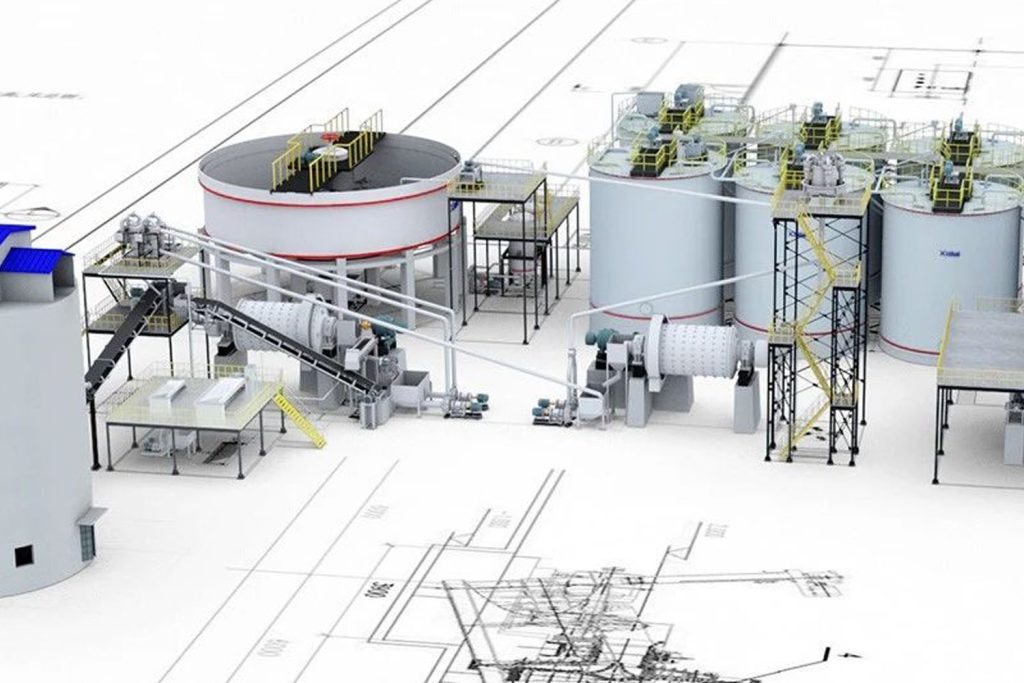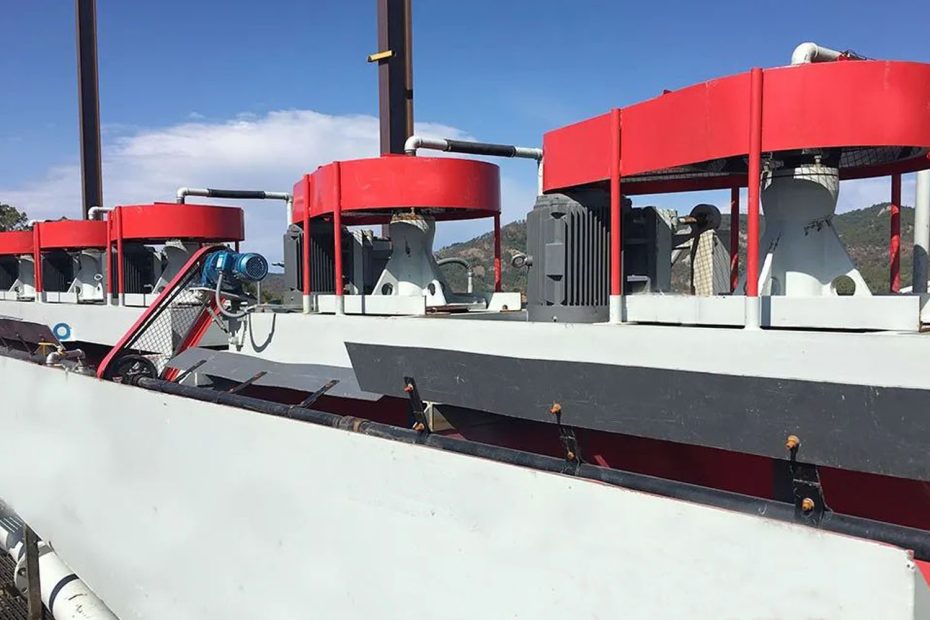The design of the mineral processing plant is an important part of the construction of the mineral processing plant. It involves the physical properties, chemical properties, mineral composition, mineral processing methods, process flow, equipment configuration, workshop layout, pharmaceutical system and other aspects of the ore, and requires high professional and technical levels. , and at the same time, it plays an important role in improving the utilization rate and economic benefits of mineral resources.
What standards should be followed in the design of a mineral processing plant?
- The design of the mineral processing plant should determine the reasonable process flow, equipment configuration, workshop layout, pharmaceutical system, etc. based on the ore properties, mineral processing test results, product plans, technical and economic indicators and other factors. The flexibility and adjustability of the process flow should be considered during design to adapt to changes in raw ore grade and properties. The design should also fully consider the adaptability to factors such as stope production and transportation conditions, requirements of metallurgical plants or finished product utilization departments, and collaboration with other local enterprises.
- The design of the mineral processing plant should be able to obtain appropriate technical and economic indicators and exert reasonable economic benefits, and enable the construction funds to be recovered and turned over as quickly as possible. The product plan should reasonably determine the concentrate grade and recovery rate to achieve high quality and high yield. Mineral resources should be utilized comprehensively as much as possible. If the recovery of some useful components in the ore is still difficult or economically uneconomical under current technical conditions, storage measures should be considered and experimental research should be actively carried out for future utilization.
- The design of the mineral processing plant should select advanced and high-efficiency process equipment, especially equipment with low energy consumption, so that the mineral processing plant has a high level of mechanization. The level of automation should take into account the specific circumstances of the current automation design, operation, maintenance, and management levels.
- The design of the mineral processing plant should pay attention to reducing energy consumption. For example, it is necessary to create conditions for the self-flow transportation of the slurry, avoid and reduce reverse transportation of materials, strengthen pre-selection operations, reduce the grinding particle size, and try to achieve coarse-grained tailing during the grinding and separation operations to increase the equipment load. efficiency, improve the concentration of transported tailings slurry, etc. Each process should be equipped with energy consumption measuring instruments to facilitate inspection.
- The design of the mineral processing plant should also pay attention to protecting the environment, especially improving the process to prevent environmental pollution from dust, poisons, waste water, waste gas, waste residue, radioactivity and other harmful substances as well as noise, and carry out comprehensive management to ensure that the design meets national standards. .

How to judge whether the design of the mineral processing plant meets the requirements?
We mentioned above the standards that the design of the mineral processing plant should meet, so how to judge whether the design of the mineral processing plant can meet the above requirements? We can make a comprehensive judgment through the following five aspects.
- Completeness and accuracy of the design basis for the mineral processing plant: The design basis for the mineral processing plant includes original data, mineral processing test results, product plans, technical and economic indicators, etc., which is the basis and premise of the design. In addition, the design basis of the mineral processing plant should be collected, analyzed and corrected to ensure the scientificity and reliability of the design.
- The rationality and advancement of the process flow: The process flow is the core of the design of the mineral processing plant, which determines the production efficiency and product quality of the mineral processing plant. The process flow should be based on factors such as ore properties, mineral processing test results, product plans, etc., and technical and economic comparisons should be made to select appropriate process methods, equipment configurations, process parameters, etc. The process flow should be flexible and adjustable to adapt to changes in raw ore grade and properties
- Suitability and efficiency of equipment selection: Equipment selection is an important part of the design of the mineral processing plant, which affects the construction investment and operating costs of the mineral processing plant. Equipment selection should be comprehensively considered based on factors such as process flow, equipment performance, equipment price, etc., and equipment that is suitable, energy-saving, and durable should be selected. When selecting equipment, attention should be paid to matching the production capacity of the equipment to avoid being too large or too small.
- Standardization and aesthetics of plant layout: Plant layout is an important part of the design of the mineral processing plant, which affects the floor space and operating efficiency of the mineral processing plant. The factory layout should be reasonably arranged based on factors such as process flow, equipment size, transportation method, etc., so that the factory building has a compact structure, clear functions, and easy operation. Factory layout should pay attention to comply with relevant norms, regulations, standards, etc. to ensure safe production. The layout of the plant should pay attention to beautifying the environment and improving the image of the mineral processing plant.
- The superiority and feasibility of technical and economic indicators: Technical and economic indicators are important evaluation criteria for the design of mineral processing plants, reflecting the technical level and economic benefits of the mineral processing plant. Technical and economic indicators should be based on relevant national or local requirements to determine reasonable concentrate grade and recovery rate to achieve high quality and high yield. Technical and economic indicators should be based on the feasibility study report, prepare estimates and budgets, analyze the project investment payback period and internal rate of return, etc., to save investment and reduce costs.
Conclusion
The design of mineral processing plant is a complex and important project, which is related to the effective utilization of mineral resources and the production efficiency of the mineral processing plant. The design of the mineral processing plant should follow scientific principles and standards, comprehensively consider various factors, select appropriate plans and equipment, and achieve ideal technical and economic indicators. The design of the mineral processing plant must not only meet the current production requirements, but also consider future development trends and potential risks, so that the mineral processing plant has the ability to continue to develop.
